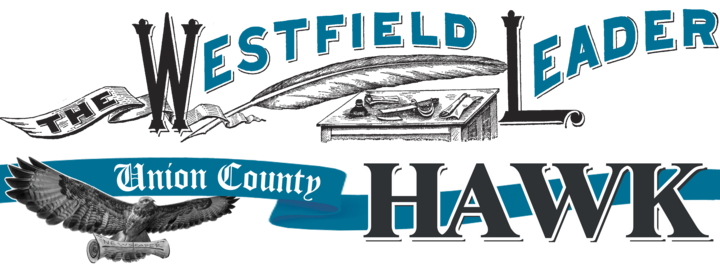WESTFIELD — Two local students are working to make life a bit easier for people with mobility challenges through a new app that rates accessibility options at restaurants, shops, businesses and community spaces throughout Westfield.
“I came up with the idea to create something like this after watching my grandparents struggle to navigate certain areas,” said Krishav Singla, a Westfield resident and current senior at the Union County Magnet High School. “It made me realize that it can be frustrating for people who don’t know what to expect before trying out a new restaurant or visiting an unfamiliar store.”
The app, Access Wayfinder, presently rates more than 140 Westfield businesses on a scale of one to five across three categories: building access (which includes pertinent information about stairs, ramps and whether or not a building’s doorways are wide enough to accommodate wheelchair users); interior space (which focuses on issues like aisle width, crowding and layout); and parking (which lets users know how many accessible parking spots are available and how far away the nearest spaces are from the entrance to a given establishment).
Mr. Singla, who partnered with Union County Vocational-Technical Schools junior Ethan Lung to code and develop the app, said he hopes the app will help more people to be able to enjoy Westfield’s downtown area without having to worry about unknown challenges.
“Eventually, we would like to expand our coverage to other communities in the area,” said Mr. Lung. “However, we wanted to make sure we had the bugs ironed out before we started to look for other opportunities.”
After a lot of research and numerous conversations with local business owners, the students chose to create their rating system based off of regulations and criteria found in the wording of the Americans with Disabilities Act (ADA).
“It would have been too cumbersome to take every aspect of the ADA into consideration for the purposes of this app, so we basically used it as a template to identify key issues,” Mr. Singla said.
But while individual ratings are assigned by the Access Wayfair designers, businesses do have the option to improve their scores by implementing certain positive changes.
“We provide each business with a Google form that they can use to keep us updated,” Mr. Singla said. “For example, if someone receives a low rating for a challenging entryway but then finds a way to add in a ramp for easier access, that score would go up.”
The project’s co-founders presented their app to the Westfield mayor and council during a regular meeting of the governing body earlier this month.
Mayor Shelley Brindle, who met with the students last year while the app was still in development, said it also could serve as a valuable resource for parents and caregivers with baby strollers.
For now, at least, the young men have no intention of monetizing their creation.
“That’s really not what this was about,” said Mr. Lung. “We realized that we had a way to do something good, and that’s all we’re looking to do.”
Councilwoman Dawn Mackey commended the pair for their innovation and willingness to help the community, but cautioned against penalizing businesses that happen to operate out of historic buildings.
“ADA compliance can be very challenging for communities that are as old as ours,” Ms. Mackey said. “I think that most of our businesses want to do the absolute best they can, but I would hate to see someone marked down for building designs that they really have no control over.”
According to information provided by the federal government, there is no “grandfather clause” in the ADA that exempts historic buildings from providing equitable access. Because the ADA is technically a civil-rights law rather than a building code, however, the law does allow each building to be assessed on a case-by-case basis.
Mr. Singla, who said he plans to continue to work on the app at least until he leaves for college in the fall, told the Westfield governing body that he and Mr. Lung would be able to add some new language to the app to alert residents and businesses to the historically-unique character of the community.
“As of right now, we can see that an average of 50 people are using the app every day. We’re really excited about that. It feels like a great place to start,” Mr. Singla said.
Access Wayfinder currently is available for download to all Apple devices.
In order to see the app in the Google Play store (the main purchasing center for Android and other operating systems), however, its creators will need some help from the community.
“We basically need to get some volunteers on board that would be willing to download a test version of the app and check in on it for about two weeks,” Mr. Singla said. “We’re hopeful that we’ll be able to get past this part of the process within the next few months.”
For more information about Access Wayfinder, or to connect with its co-founders, email Mr. Singla at ksingla1900@gmail.com.



